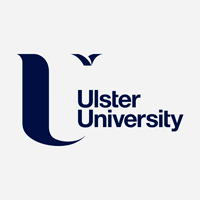fees waived
Biomedical Engineering, BEng (Hons), with industry placement
Ulster University, United Kingdom
Subject ranking
UK / The Times 12th
UK / CUG 20th
UK / Guardian 49th
Costs
food & rentS$24.4K / year
Entry requirements
Scholarships
Unlimited quantity
Unlimited quantity
Limited quantity
Information
Code
Code
Intakes
Website (External)
Programmes
Information
Duration
2028
Firstly, we need to define what Engineering is before considering what Biomedical Engineering is. Engineering is the application of science and mathematics by which the properties of matter and the sources of energy in nature are made useful to people. Another definition for Engineering is the design and manufacture of complex products. Therefore, Biomedical Engineering should be considered as Engineering that is applied to human health. However, human health is multifaceted – not only involving our physical bodies but also the things we put in our bodies (Pharmaceuticals) and the things we put on our bodies (Clothing). Therefore, Biomedical Engineering spans a variety of problems and interests.Biomedical Engineers (sometimes referred to as Bioengineers) are responsible for driving innovations and advances in medicine. Another way to describe Biomedical Engineering is as follows.1. A Doctor diagnoses and treat patients.2. A Biomedical Scientist analyses samples from a patient in a hospital laboratory so that the doctor knows how to diagnose and treat the patient.3. A Biomedical Engineer designs and develops all of the equipment used by the doctors and the biomedical scientists.In many respects “The history of medicine is the history of its tools” and hence The Biomedical Engineer is the person who invents and provides these tools. Indeed, the discipline continues to evolve and expand into new areas such as tissue engineering and regenerative medicine, a core research theme within the School of Engineering at Ulster University.
A local representative of Ulster University in Singapore is available online to assist you with enquiries about this course.

